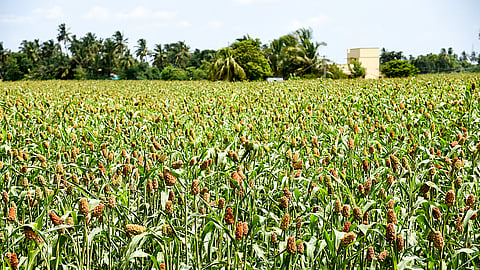University of Hyderabad joins global millet study that could reshape India’s farming future
HYDERABAD: A breakthrough that could improve India’s Millet Mission and promote sustainable farming has been achieved by a global team of scientists including researchers from the University of Hyderabad (UoH).
They found that crop wild progenitors (CWPs) are essential for sustainable ecosystems and offer insights for future agriculture The research, published in ISME Communications, is titled “Native Edaphoclimatic Regions Shape Soil Communities of Crop Wild Progenitors.”
Led by María José Fernández-Alonso of the Universidad Autónoma de Madrid, it involved 25 research groups from 11 countries, with significant contributions from UoH’s Professor Appa Rao Podile and Dr Ch. Danteswari.
The team analysed 125 populations of 10 CWPs and found rich microbial ecosystems in their soils.
They identified four major ecoregions based on soil characteristics, revealing that despite ecological differences, all CWPs shared a “core” microbiome, indicating a disrupted ancient plant-soil partnership.
Tropical soils were inhabited by acid-loving bacteria and fungal parasites, while desert soils thrived with decomposer fungi and protists.
Each wild species acted as a keystone species, vital for underground biodiversity.
Professor Appa Rao Podile said, “Understanding the natural microbiomes of wild crops helps us reconnect agriculture with its ecological roots.”
The story is reported by Khyati Shah for The New Indian Express


